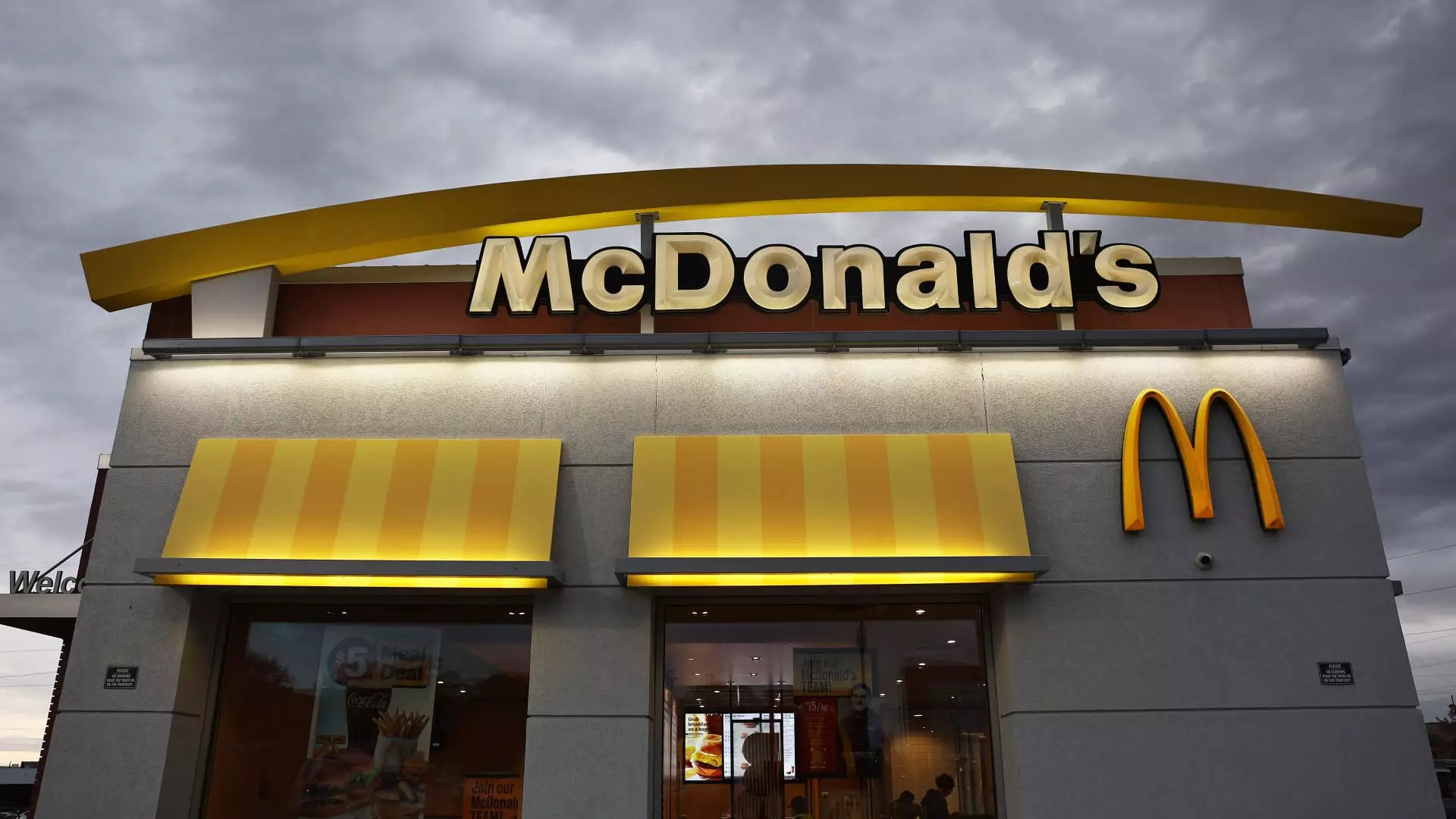McDonald’s Corporation, a leader in the fast-food industry, recently disclosed its quarterly earnings for the fourth quarter, revealing a mix of challenges and successes. While the company’s earnings per share met expectations, the overall revenue did not, reflecting the impact of an E. coli outbreak that occurred mid-quarter. This article delves into the various factors that contributed to these results and the implications for the company moving forward.
The financial results shared by McDonald’s indicated a fourth-quarter net income of $2.02 billion, or $2.80 per share, which represents a slight decline from the $2.04 billion reported during the same period the previous year. Adjusted earnings per share settled at $2.83, aligning with analyst expectations; however, total revenue of $6.39 billion fell short of the anticipated $6.44 billion. Such discrepancies often indicate either a shift in consumer behavior or unforeseen operational challenges, or in this case, a combination of both.
Same-store sales growth was an area where the company demonstrated some resilience, achieving a modest increase of 0.4%. This was notably better than the anticipated decline of 1% predicted by market analysts. However, the company’s U.S. operations revealed a concerning narrative, as same-store sales experienced a steeper decline of 1.4%, contrary to the forecasted 0.6% drop. This raises critical questions regarding the effectiveness of the strategies implemented by McDonald’s to attract customers during tumultuous periods.
A significant turning point during this quarter was the link of a fatal E. coli outbreak to McDonald’s Quarter Pounder burgers. Identified as a serious public health risk, this outbreak undoubtedly affected consumer perceptions and subsequently company traffic, leading to an immediate downturn in sales. The Centers for Disease Control and Prevention (CDC) stated that McDonald’s possibly sourced contaminated slivered onions, prompting an urgent supplier change. Although the CDC declared the outbreak over by early December, the damage to customer confidence was done, especially in the states where these cases were reported.
The ramifications of the outbreak extended beyond immediate financial losses – they initiated a potential reevaluation of food safety practices within the organization. In an industry where public trust and brand reputation are paramount, McDonald’s inability to maintain stringent safety measures could pose long-term challenges, necessitating rigorous internal audits and enhanced supplier vetting processes to prevent similar incidents in the future.
In response to declining sales, McDonald’s had previously introduced discount meal options to cater to price-sensitive consumers. A $5 combo meal aimed to encourage customers to return during peak summer months and initially seemed effective. However, analysts have raised concerns that such value-based promotions may not sustain long-term engagement without encouraging customers to spend on non-discounted items, which are vital for the company’s profitability.
The fluctuation in traffic and sales also brings attention to changing consumer behaviors in the fast-food sector, where patrons increasingly seek value for their investment. As economic pressures rise, fast-food chains may need to reevaluate their pricing strategies and menu offerings to ensure they remain competitive in a crowded marketplace.
While the U.S. market faced considerable challenges, McDonald’s reported stronger sales performance in its international divisions. The company’s international developmental licensed markets segment, which encompasses regions such as the Middle East and Japan, reported respectable same-store sales growth of 4.1%. Moreover, McDonald’s international operated markets division recorded a modest same-store sales growth of 0.1%. This divergence between U.S. and international performance highlights the importance of diversification, with global markets providing a lifeline amidst domestic struggles.
Despite the challenges faced during the quarter, the international segments illustrate that McDonald’s remains a formidable global player, utilizing localized strategies to capture market share. However, it poses the challenge of sustaining this growth while addressing domestic issues head-on.
The latest quarterly results from McDonald’s underscore the complex dynamics of managing a global fast-food enterprise. While the company has shown resilience and adaptability in certain areas, the challenges posed by health crises and changing consumer behaviors necessitate strategic pivots. McDonald’s must not only address immediate operational concerns following the E. coli outbreak but also develop broader strategies to enhance consumer confidence and ensure sustained profitability in an evolving market landscape. The path forward requires a blend of innovation, rigorous safety protocols, and a keen understanding of consumer preferences – all vital for reclaiming growth in their U.S. market while continuing to exploit international opportunities.

Leave a Reply